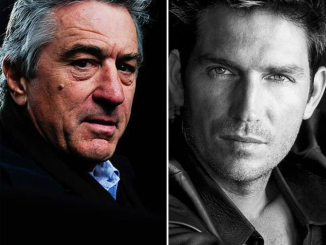Sir David Attenborough is a widely revered figure in the realm of natural history and broadcasting. With a career spanning over six decades, he has captivated audiences around the world with his nature documentaries, fostering a deep appreciation for the wonders of the natural world.
Early on, Attenborough’s fascination with the natural sciences led him to study at the University of Cambridge. After completing his studies, he embarked on a broadcasting career with the BBC in 1952. In the pioneering series “Zoo Quest,” Attenborough not only produced but also appeared on camera, setting the stage for his future endeavors and establishing his engaging and informative style.

In the 1970s, Attenborough made a significant shift in his career, transitioning back to content creation from administrative roles within the BBC. This shift led to the creation of the groundbreaking series “Life on Earth” in 1979, which reached an astonishing 500 million viewers worldwide. Attenborough’s subsequent works, such as “The Blue Planet” and “Planet Earth,” have been acclaimed for their extensive research, stunning cinematography, and his captivating narration.
What truly sets Sir David Attenborough apart is not only his immense knowledge of the natural world but also his ability to connect with audiences. His warm and engaging narration conveys both a sense of wonder and an urgent call for environmental conservation.

Throughout his illustrious career, Attenborough has received numerous accolades, including BAFTAs, Emmys, and the distinguished Order of Merit from Queen Elizabeth II. His unwavering commitment to raising awareness about the beauty and fragility of our planet has not only made him a respected broadcaster but also a global advocate for environmental issues. Even in his 90s, his work continues, leaving a lasting impact on future generations.
Now, at the age of 97, Sir David Attenborough openly admits to grappling with memory loss, particularly when it comes to remembering names during scriptwriting. However, this natural decline in memory does not hinder his career or disrupt his daily life. It is estimated that around 40% of people experience memory loss after the age of 65, but this does not necessarily indicate dementia. Attenborough firmly refuses retirement, declaring that “putting your feet up is all very well, but it’s very boring.”

Despite these memory challenges, Sir David Attenborough continues to inspire through his ongoing series, “Planet Earth III,” where he highlights the importance of coexisting with nature and takes on our responsibility towards it. His resolute dedication to his craft and his enduring passion for the natural world make him a living legend and an inspiration to people of all ages.

Doctors Dismiss 8-Year-Old’s Pain as a Toothache—You Won’t Believe What They Missed
Sometimes, children find it hard to express their feelings. This means parents need to be more aware of what their child needs. These parents did just that, but sadly, it was beyond their control.
At the dentist, they found that he had some swelling in his teeth, likely due to a tooth infection. But instead of getting better, the swelling continued to grow.

When nothing seemed to help and his swelling got worse, his parents quickly took their upset child to a hospital. There, they received heartbreaking news: he had tumors on his brain and spine.
What was believed to be a tooth infection turned out to be a rare type of cancer called Rhabdomyosarcoma. This cancer is so rare that it affects only about 55 children in the UK each year.
The first signs of this diagnosis are swelling or lumps that can appear on the body.

“Our world fell apart,” said Ethan’s father, Mark, in an interview.
Doctors discovered that Ethan’s cancer had spread to his lungs and bone marrow. They decided to start a strong treatment plan that included chemotherapy and radiotherapy.
But after nine months of treatment, Ethan passed away at just 9 years old.
After his death, his parents were very upset and called the treatment methods used for their son “embarrassing” and outdated. The grieving parents started a fundraiser in Ethan’s name to help support research.

Mark, Ethan’s father, described the treatment methods as “embarrassing” and said they are very outdated. They set a goal of $62,000 for their fundraiser, and about half of that has already been raised.
“We don’t want other families to go through what we’ve experienced; it’s terrible,” said Ethan’s family.
After his death, the issue of funding research on childhood cancer has been discussed in parliament, which is an important step toward ensuring more money is directed to this area.
If you found this story interesting, check out the one below about a three-year-old who passed away after dental procedures.



Leave a Reply